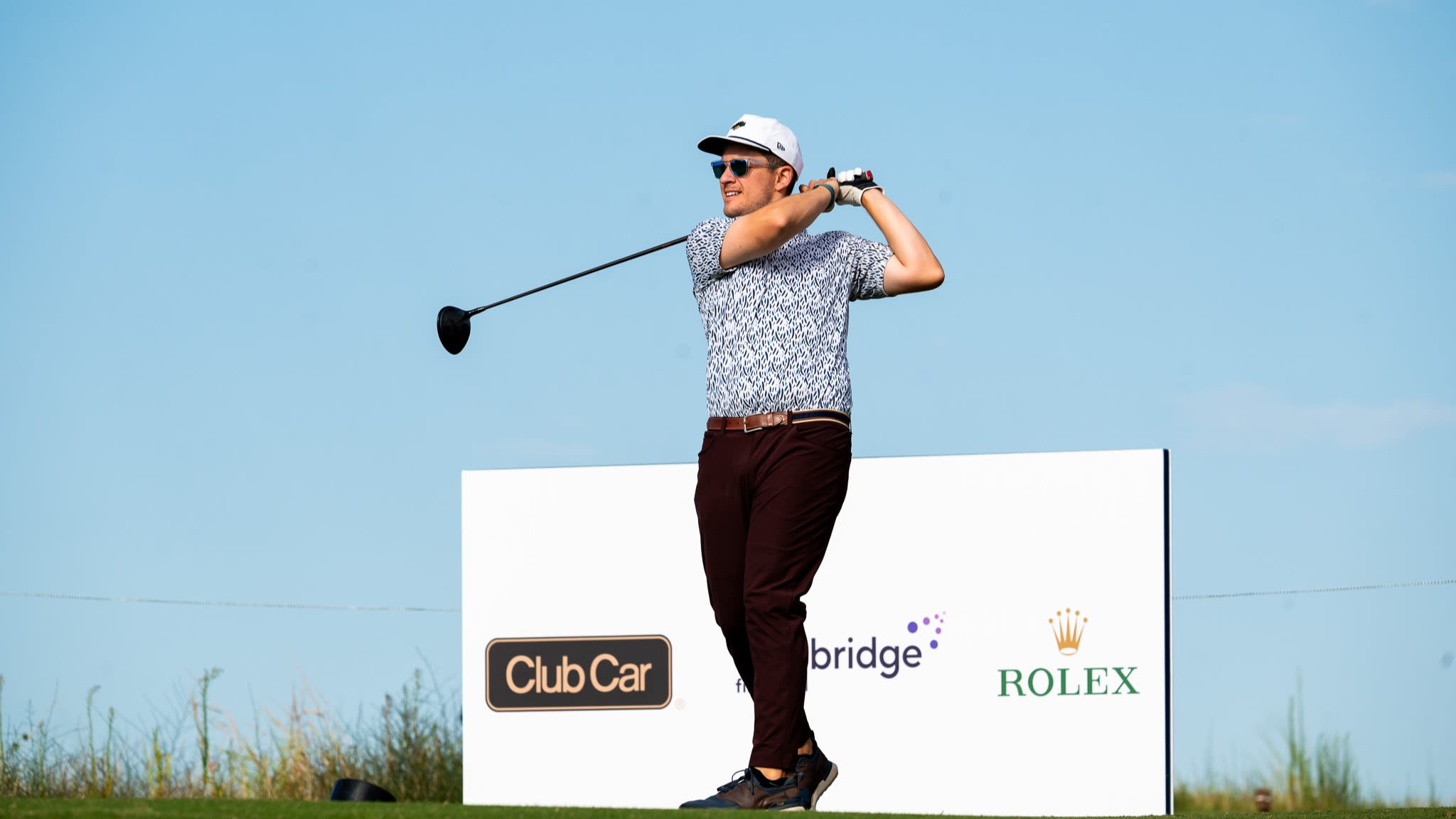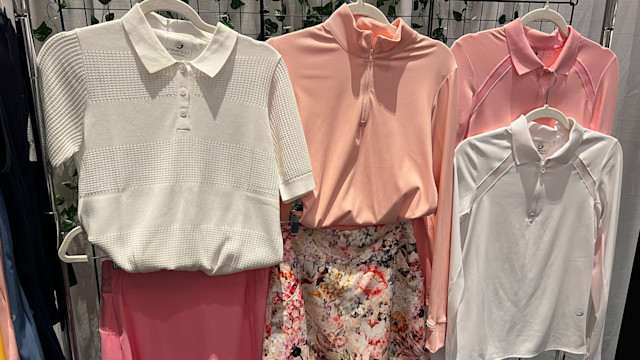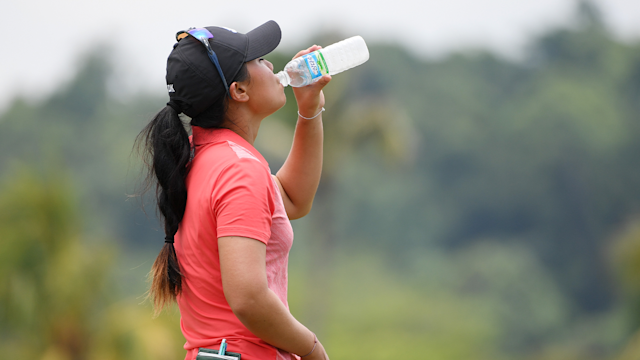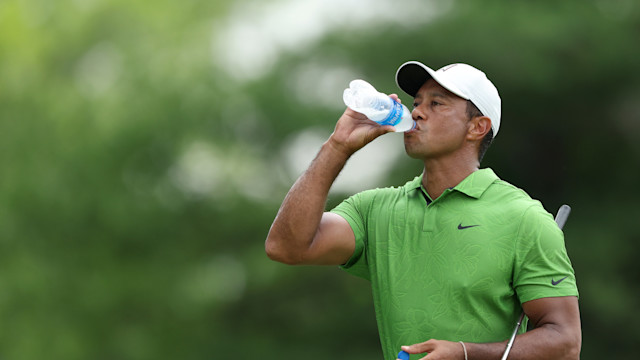quick coaching
Three Reasons Why Playing More Tournament Golf Can Make You a Better Player
By Ryan Adams, PGA
Published on

(Steven Clements/Northern Texas PGA)
You know that feeling when you’re just absolutely striping the ball on the range?
That was me on Monday, about 30 minutes before teeing off in the 2023 Northern Texas PGA Professional Championship. Club after club at the impeccable practice facility of the newly-opened Fields Ranch at PGA Frisco in Texas, I couldn’t miss.
Wedges, irons, hybrids, 3-wood, driver — you name it, I could hit it. Same with the practice green: short putts, long putts, mid-range, I was draining everyone.
Then came 11:32 a.m. CT, my tee time at Fields Ranch East, host of the 2023 KitchenAid Senior PGA Championship and a formidable test for every player yearning to play the course again next spring in the national PGA Professional Championship.
“Now on the tee, from the PGA of America, Ryan Adams!”
It felt like someone had just injected a pot of coffee straight into my veins. There I was on the No. 1 tee box ready to fire away and attack the opening par-5, but it was difficult to slow my breath down. So I took a deep breath before lining up, hoping that would help.
It didn’t.
I yanked my driver back absurdly fast, completely out of sync and sent a slice well right into the Texas scrub brush that lurks all over the East. A double bogey ensued. And then another.
As I look back now a day after the tournament has finished, I realize what a great learning moment the tournament was — not just for me as a PGA Professional who loves to play (and can play well), but for someone always trying to get better and have more fun.
Tournament golf can be so rewarding, but it also can offer you the biggest slice of humble pie, like it did for me this week at Fields Ranch. The question is . . . what can you learn, and how can you use it to get better?
Consider this your user’s guide:
Everyone is nervous, but the best players take advantage of it
You’ve probably heard the saying, “If you’re not nervous, it means you don’t care.” I can tell you that’s true — especially when it comes to the first tee of a competitive golf tournament. I was nervous, but so were my playing partners to some degree probably. It’s only human! You want others to see you do well so they remember you and how good of a player you are. Hate to say this, but golf could really care less. It will make you look foolish and then turn around and make you the hero.
The key is finding a way to transfer that nervous energy into, well, actual energy. The best players do this by flipping the nerves into extreme focus — they lock-in, only concern themselves with their target and fire. They could care less about what the starter thinks, or what the people on the first tee say. You’re entering into a competitive golf tournament for you — not for a random person watching.
When it comes to golf and nerves, my biggest piece of advice? Be selfish and remember why you’re there. Practice that attitude in rounds leading up to your tournament so it shows up on the big day.
And one more thing: Everything will move faster on that first tee box; your steps, your swing, your heart — it’s all amped up a few notches. On that takeaway, try thinking, “slow, smooth and finish.” While I didn’t do that on No. 1, it helped on tee shots later in the round and on Day 2.
You need a routine that you can count on at all times
No matter what level of golfer you are, this is your warning to establish a sound pre-shot routine now. When you don’t have a routine, swing thoughts, mechanics, negative feelings and just about any thread of information can enter into your sphere. It did for me in Round 1 when I tried to guide and steer my tee shots to the fairway. I ended up shooting 95.
And while I recovered to shoot 12 shots lower on Day 2, my routine was out of whack. I couldn’t decide whether I wanted to hit a draw or a high fade, and it resulted in way too many balls left out on Fields Ranch East.
Try this: The next time you hit the range, set aside 3-5 golf balls. Once you’re done working through the bucket, use those balls as your “routine” swings. Do what feels right to you pre-shot (practice swings, waggles, target looks, etc.), and then once you’re comfortable with it, do that same routine again. And again. And again. And again, until you’ve gone through the 3-5 balls. Do the same for iron shots, chips and especially putts. Consider those last couple balls your “game” balls — like they count for something.
That way, when you’re faced with a tricky, nervy tee shot in a real competitive championship, you’ll be ready with a well-oiled routine.
Work on your mental game just as much as your swing
I’m not much of a bookworm, but my dad recently gave me a great golf book called “Golf is Not a Game of Perfect.” My goal was to finish it prior to the tournament at Fields Ranch, but I didn’t.
While I’m not blaming my scores on not completing the book — a great mental game manual written by the renowned Dr. Bob Rotella — it underscored to me the importance of your brain and how you think when it comes to playing golf.
I had a lot of positive thoughts going into the Northern Texas PGA Professional Championship, but also some negative ones that lurked from prior rounds. That’s a recipe for disaster, but by the time I headed to the No. 1 tee, it was too late to rid them from my mind. I was toast.
If I could go back in a time machine to early August, my two goals in rounds leading up to this past week would be, one, have as much fun as possible, and two, focus only on the target. That’d be followed shortly by pulling the trigger quickly and not thinking too much about the outcome.
When you go out for practice rounds on the course prior to your tournament, try to get in a confident, “flow” state — where your pre-shot routine, mannerisms, and everything else leading into a shot just flows naturally. Eliminate the overthinking, the constant tinkering, the “my coach told me this and to do this at this point and that at this point,” and just dial-in on your target, whatever it may be.
You’ll be more confident, and confidence breeds better golf shots. And as you can guess, better golf shots lead to better tournament performance!
Have fun out there.


